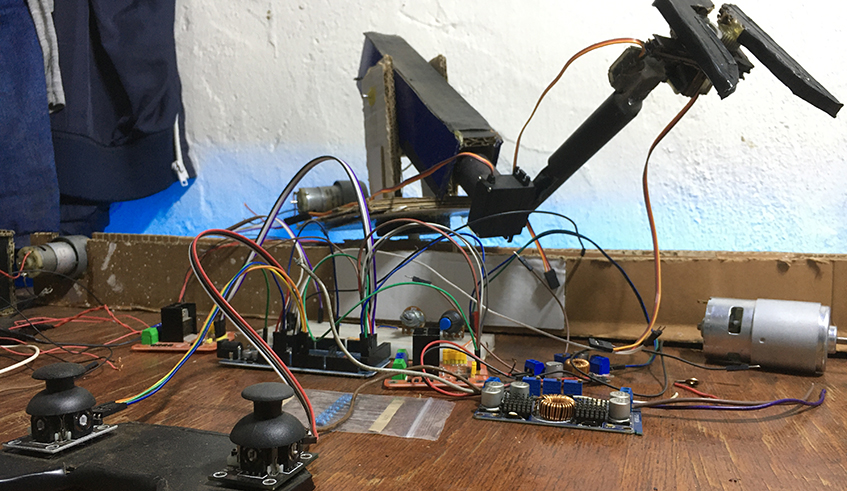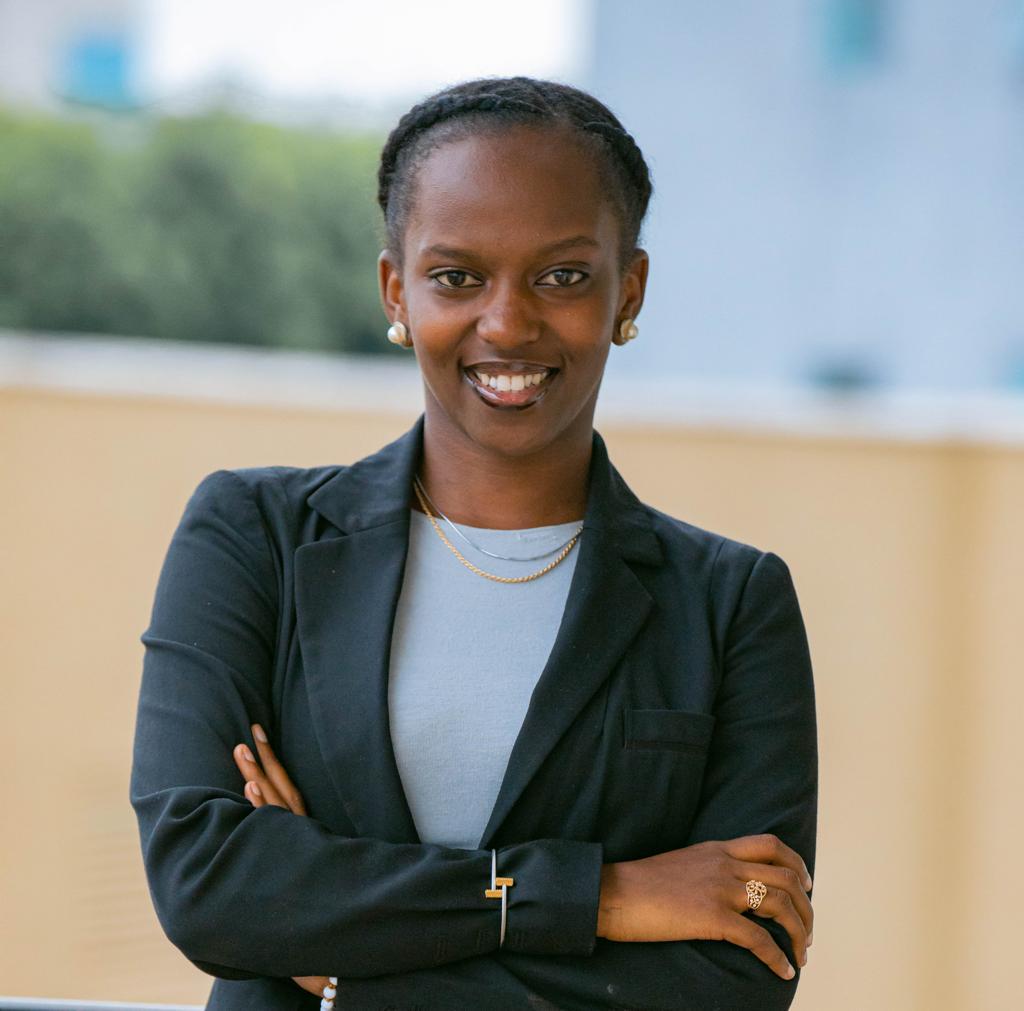

Richard Muhirwa was a very active child, always dismantling things to see what was inside, or putting random things together to see the outcome. 24 years later, the rather bothersome little boy turned out to be a robotics engineer.
He faced numerous challenges along the way, obviously, and few people understood what he was up to. In addition to not being very social, the two friends he shared similar ideas with, eventually lost faith and left him to his ‘crazy vision’. Since 2019, his dream has been to create a robotics invention that will propel Rwanda into the international spotlight.
One day, he decided to enter an innovation-based competition hosted by the Ministry of Youth and Culture. It aimed at empowering youth and keeping them active during the first lockdown as the country was fighting the Covid-19 pandemic in 2020.


A robot controller, one of his inventions.
Inspired by a YouTube video demonstrating how to make a small human assist robot, he began working on one that could assist doctors and nurses in bringing food, water, and medication to Covid-19 confined patients, thereby avoiding the risks the caregivers were exposed to.
His illustrating video, despite its low quality, drew a lot of attention when it was posted on the Ministry’s Twitter account. At the very least, it gave him some exposure, which helped him get into other national competitions. He had not even won any yet, but he wasn’t about to give up.
However, it was becoming increasingly difficult to obtain the necessary materials and resources. He had previously been using a portion of his stipend from a scholarship at the University of Rwanda, where he is studying Electrical Power Engineering.
"Materials required to make real and big inventions are very expensive, whereas I was only buying a few and recycling electronic waste to be able to make my little robots,” he says.
He then approached kLab, a local open space for IT entrepreneurs, to inquire about any assistance they could offer him. "Because this is a sort of incubator, my little creations were not very tangible for them. Instead of impromptu ideas, they asked me to come up with a project that they could fund,” he says.
In 2020, Richard Muhirwa began working on a robot that could assist doctors and nurses in bringing food, water, and medication to Covid-19 confined patients. Photos/Courtesy
His two friends who had been with him up until that point decided it was not for them and left. "They expected us to create something and then someone would buy it, invest in us, or give us an award. When it didn’t happen, they went on to focus on other things. But I stayed,” he adds.
According to Muhirwa, the only ‘disease’ that impedes Rwandan innovators is giving up. "All of the greatest innovations I’ve seen took time, failed numerous times and persisted to learn and progress. And that’s why I stayed, so that one day, Rwanda’s flag will be raised among the great scientific and technological innovations.”
"Even if not by me,” he says, "Someone else may be inspired by my courage and restlessness and thus make the country and continent proud.”
He is now in his final year of university and continues to push. At different times, High View Tech Group and Leaper Rwanda took him under their wings, providing him with a place to work and simply explore his creativity. They provided him with guidance and real-world field experience, among other things.
In June, as the country was hosting the 26th Commonwealth Heads of Government Meeting (CHOGM), he made a joke on Twitter, posting a video of one of his robots named Umufasha. "Umufasha is delighted to assist in welcoming and serving our guests at CHOGM,” he said. It quickly went viral, receiving many engagements and retweets.
"Rwandans are not yet well-versed in this field. But that kind of encouragement proved to me that their minds and hearts are open to new ideas and that they are proud of those like me,” he says.
Muhirwa dreams of pursuing a Master’s Degree at Carnegie Mellon University, where he hopes to be admitted with the help of his humble inventions.


